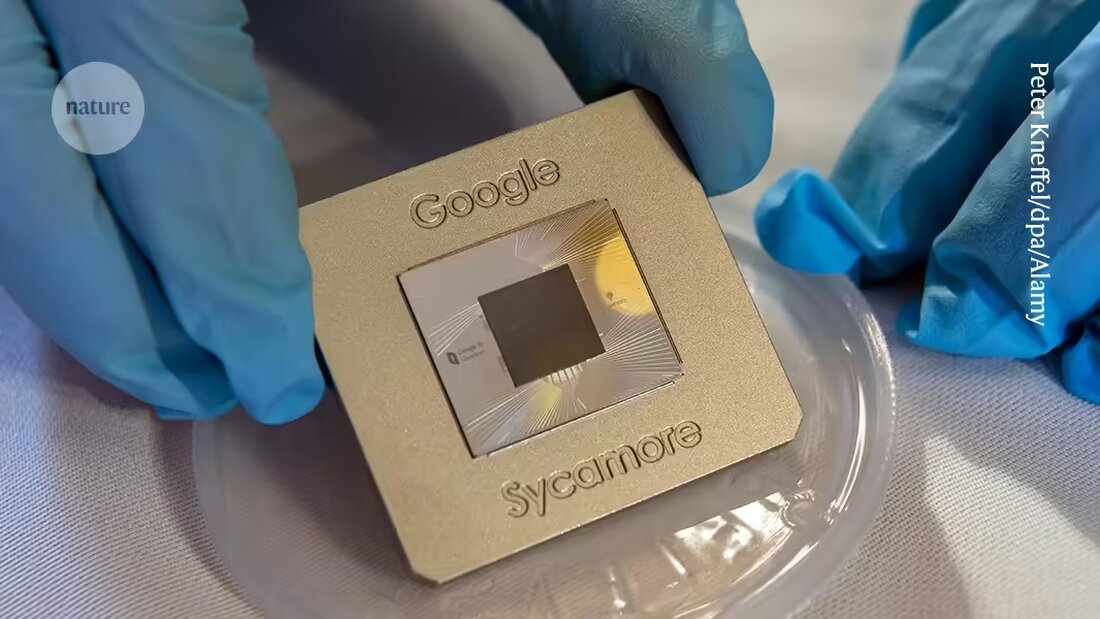Google reveals how quantum computers can outperform modern supercomputers
Google has discovered how, under certain conditions, quantum computers can outperform classical supercomputers by solving complex tasks faster.

Google reveals how quantum computers can outperform modern supercomputers
Since the first quantum computers were conceived in the early 1980s, researchers have been hoping for the day when these devices Can solve problems that are too difficult for classic computers. Over the last five years, these machines have actually begun to challenge their classic counterparts - although definitive victory over them has so far been elusive.
In a current phase of the battle for so-called 'quantum advantage', Google researchers say they have determined the conditions under which Quantum computers can outperform their classic colleagues. To understand these conditions, they used a quantum processor called Sycamore to run random circuit sampling (RCS), a simple quantum algorithm that essentially produces a random sequence of values.
The team analyzed Sycamore's output and found that it could be "tricked" or beaten by classical supercomputers in a high-noise mode while running RCS. However, when the disturbances reduced to a certain threshold, Sycamore's calculation became so complex that performing a spoof was effectively impossible - it was estimated that it would take the world's fastest classical supercomputer ten trillion years. This realization was initially in a preprint reported on the arXiv server last year and today in Nature 1 published.
Quantum experts emphasize that this represents compelling evidence that Sycamore is capable of outperforming any classical computer running RCS. In 2019, Google reported that its quantum computer could run RCS and achieve quantum advantage. Since then, however, classical computers have executed the algorithm faster than estimated, negating the supposed advantage. Michael Foss-Feig, a quantum computing researcher at the software company Quantinuum in Broomfield, Colorado, explains: "Google has done an excellent job clarifying and fixing many known issues with RCS." The new results show how much noise quantum computers can have and still beat classical computers.
The ongoing competition between classical and quantum computers is a driving factor in this field, according to Chao-Yang Lu, a quantum physicist at Shanghai University of Science and Technology. This competition has motivated researchers to build larger and higher quality quantum computers.
However, Google's latest result does not mean that quantum computers will replace classical computers. For example, Sycamore cannot perform typical operations of a regular computer, such as saving photos or sending emails. Sergio Boixo, the head of Google's quantum computing project in Santa Barbara, California, explains: "Quantum computers are not faster — they are different." They are ultimately intended to perform classically impossible — and useful — tasks, such as accurately simulating chemical reactions.
The Sycamore processor looks similar to the silicon chips that power everyday laptops, but is specifically crafted to control the electrons flowing through it with quantum precision. To reduce temperature fluctuations that would destroy the delicate states of the electrons and introduce noise, the chip is kept at ultra-cold temperatures near absolute zero.
Instead of classical bits (which are always either 0 or 1), the quantum chip uses qubits, which exploit the ability of electrons to be in a mixture of states. A quantum computer can perform some tasks using exponentially fewer qubits than the bits a classical computer would need. For example, a classical computer requires 1,024 bits to run the RCS algorithm, while a quantum computer requires only 10 qubits.
Five years ago, a team of Google researchers reported in Nature 2, that it would take a classical supercomputer 10,000 years to recreate a 200-second RCS run on their 53-qubit computer. Almost immediately the claim came under fire; Researchers at technology giant IBM published a preprint online 3, which suggested that a supercomputer could actually complete the task in a few days. In June, Lu and his colleagues used powerful classical computers to fake the result in just over a minute 4.
Google's 2019 result is not the only one affected by classic fakes. In June 2023, IBM researchers and others reported evidence 5 that their 127 qubit computer could solve potentially useful mathematical problems, which “go beyond brutal classical calculations.” Within a few weeks, several studies showed 6, 7 that classical approaches could continue to compete.
Boixo and his colleagues wanted to understand how noise makes quantum computers vulnerable to classical forgeries. They found that even tiny differences in the qubit error rate — from 99.4% error-free to 99.7% — cause Sycamore to behave as if it were in a new state, similar to how matter changes from solid to liquid.
“What [the noise] does is it turns the system into something classical,” says Boixo. Once an updated version of Sycamore with 67 qubits exceeded a certain noise threshold, its RCS output became classically impossible to simulate.
Over the past two years, attempts to surpass classical supercomputers have also focused on reducing qubit noise. Foss-Feig and his colleagues ran RCS on a 56-qubit quantum computer with a low error rate 8 through. With better qubits, he says, “classical computers can no longer compete with quantum computers, at least for RCS.”
One day, researchers hope that quantum computers will be large enough and error-free enough to move beyond the conflict between quantum and classical computers. For now, they are content to fight. “If you can’t gain an advantage in RCS, the simplest of the applications,” says Boixo, “I don’t think you can win in any other application.”
-
Morvan, A. et al. Nature 634, 328–333 (2024).
-
Arute, F. et al. Nature 574, 505–510 (2019).
-
Pednault, E., Gunnels, J. A., Nannicini, G., Horesh, L. & Wisnieff, R. Preprint at arXiv https://doi.org/10.48550/arXiv.1910.09534 (2019).
-
Zhao, X.-H. et al. Preprint at arXiv https://doi.org/10.48550/arXiv.2406.18889 (2024).
-
Kim, Y. et al. Nature 618, 500–505 (2023).
-
Tindall, J. et al. Preprint at arXiv https://doi.org/10.48550/arXiv.2306.14887 (2023).
-
Begušić, T. & Kin-Lic Chan, G. Preprint at arXiv https://doi.org/10.48550/arXiv.2306.16372 (2023).
-
DeCross, M. et al. Preprint at arXiv https://doi.org/10.48550/arXiv.2406.02501 (2024).

 Suche
Suche
 Mein Konto
Mein Konto
